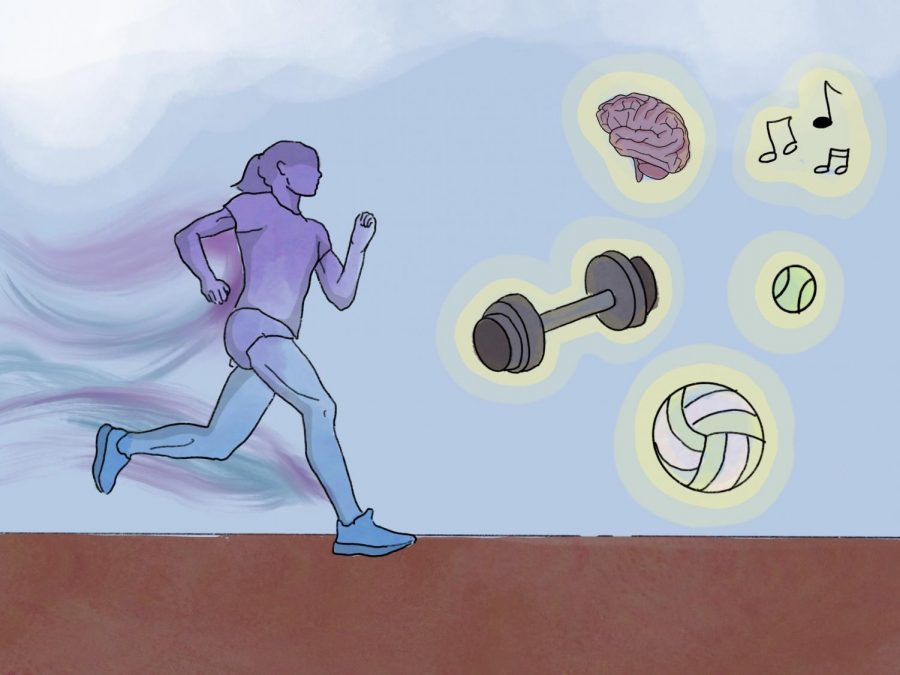Avoiding injury on the road to return
As an athlete, there’s a lot coming at you and your body. It’s important to have tools that keep you strong and injury-free to find your groove again after a long break.
Here’s a word of advice to returning athletes:
With California’s shelter-in-place order being lifted, Season 1 sports are set to officially start practices today and the future of high school student athletes is looking up. There will be no more sitting on the couch, having seasons get pushed back time and time again. It’s go time.
My club gymnastics team started holding practices again over the summer, just three months after the initial lockdown, and even then coming back was no easy task. I wish someone would have given me a heads up for the obstacles I’d run into and strategies to get through them. Hopefully, I’ll be able to do that for you.
Prepare yourself physically. Rather than spending hours down the road doing physical therapy exercises and conditioning on the sidelines due to an injury, come up with a game plan. Do prehab, not rehab.
Even though doing pushups and squats at home helps build major muscles, injury prevention exercises such as ankle raises, side walks with a band, or wrist lifts with a weight are going to be your best friend in terms of strengthening the tiny muscles that keep you from spraining your ankle or tearing your achilles tendon. Ask your coach or physical therapist for exercises based on your previous injuries or weak areas. Buy a thera band and get to work!
Prepare yourself mentally. Sports are more mental than you may think. If you have been working out consistently throughout these months of lockdown, you are already shortening the learning curve upon your return. But a weak mental game can be just as detrimental, if not more, than a weak physical game.
For a few minutes each day, try visualizations: picture yourself at a practice, paying special attention to form. Recall the deep nose-breathing pattern that helps you maintain your stamina. Refresh your memory with a few key words to highlight in your mind during a race, meet or game.
When I stood on a beam for the first time in months, I was terrified — I had completely forgotten how it felt to do a backflip with a practically zero margin of error. But I still had my key words in my back pocket: strong jump, open hips, stay grounded. These words are fuel for muscle memory.
Be patient. Before you dive back into things expecting them to be right where you left them, take it slow. Expect things to feel different, and prepare to be the most sore you have ever been. This is the most important time to listen to your body, and stop when it hurts. As my coach tells me, you don’t have to win every practice. There are times to push through injuries, but the first few weeks back is not that time. Eventually, your body will readjust and things will feel like second nature again.
Don’t lose motivation. For this one, the best advice I can give is to make a “beast mode” playlist, and make sure that “Hall of Fame” is on there. Get strong and don’t give up. It’s go time.





